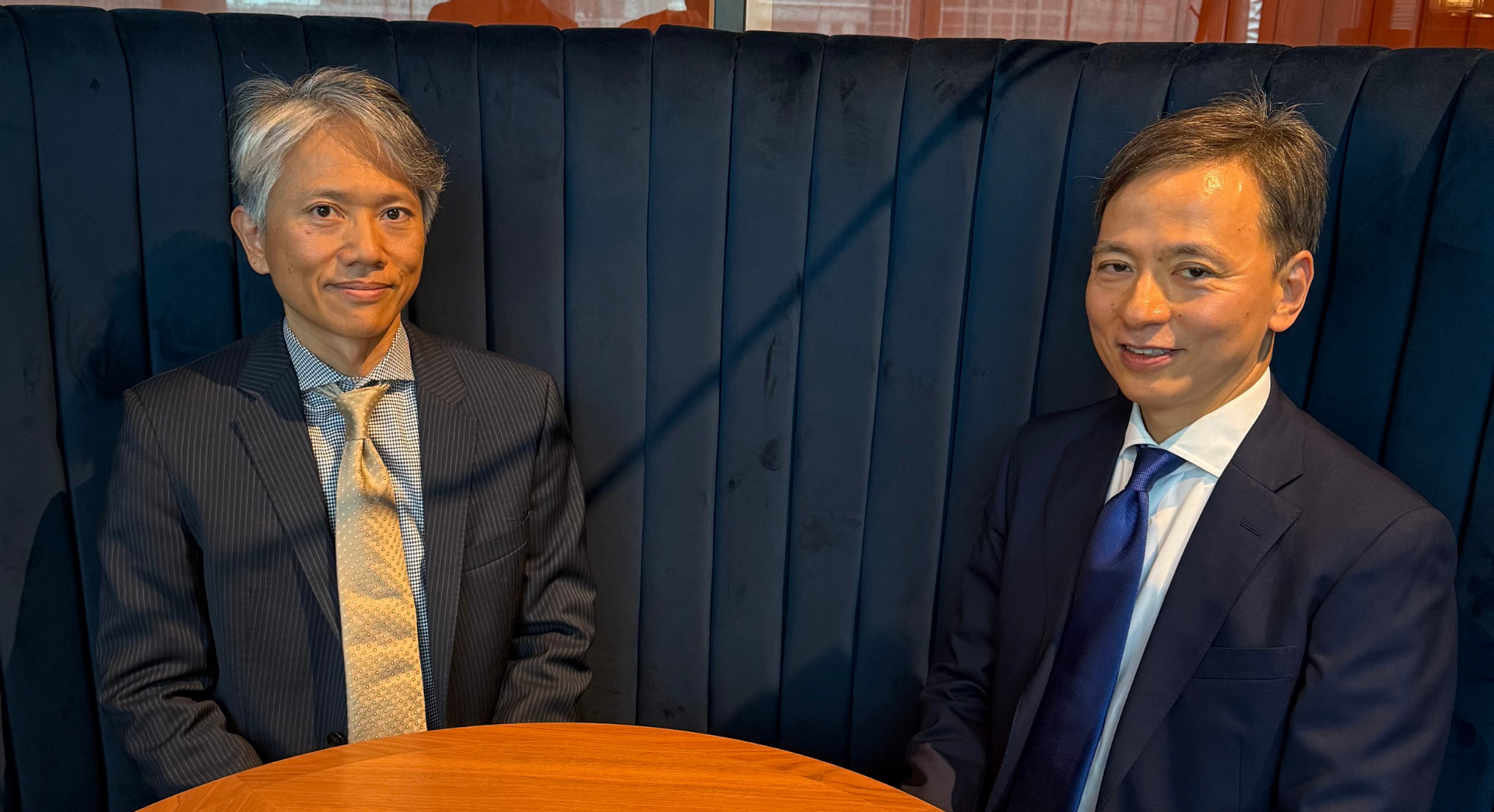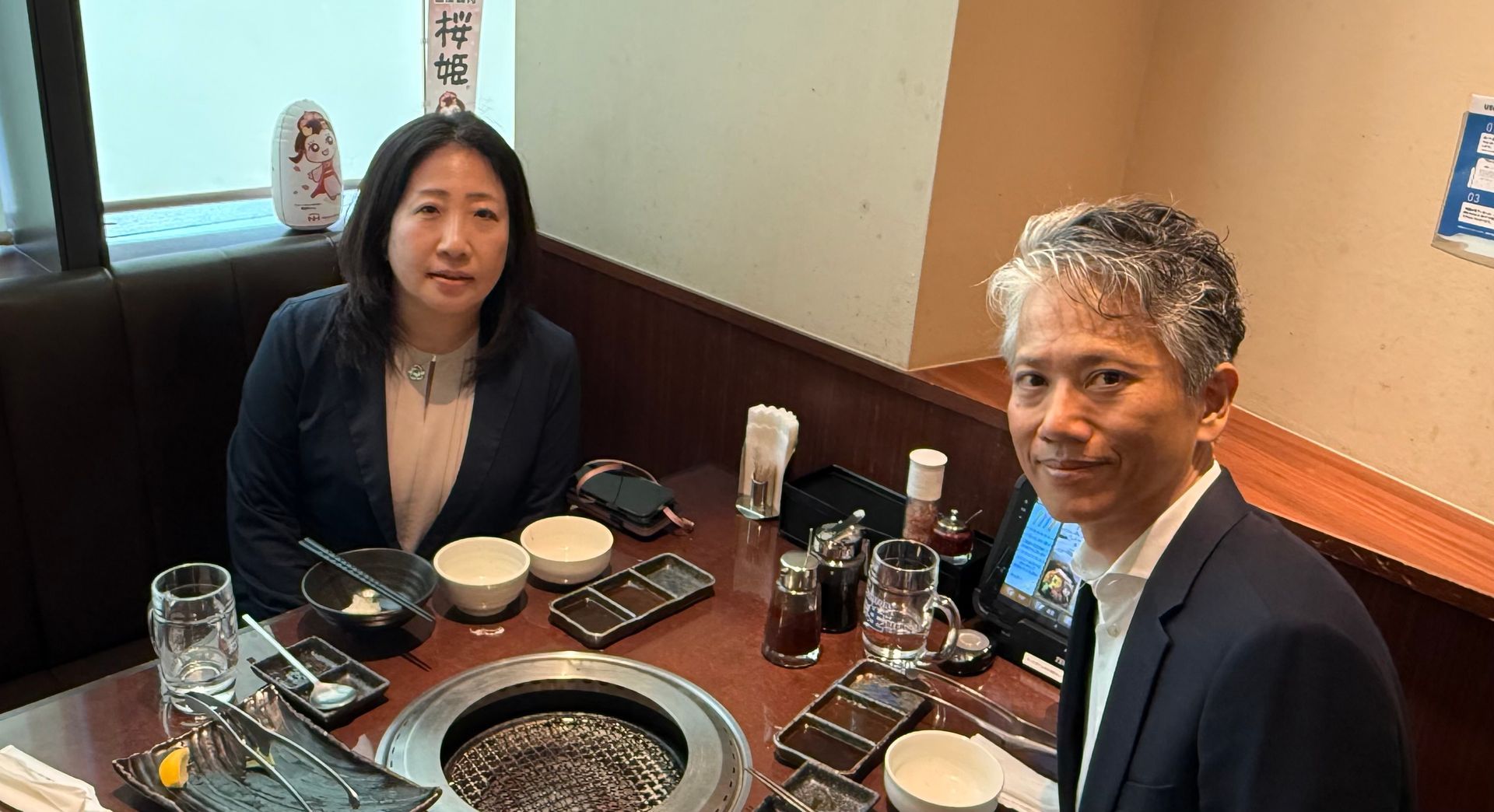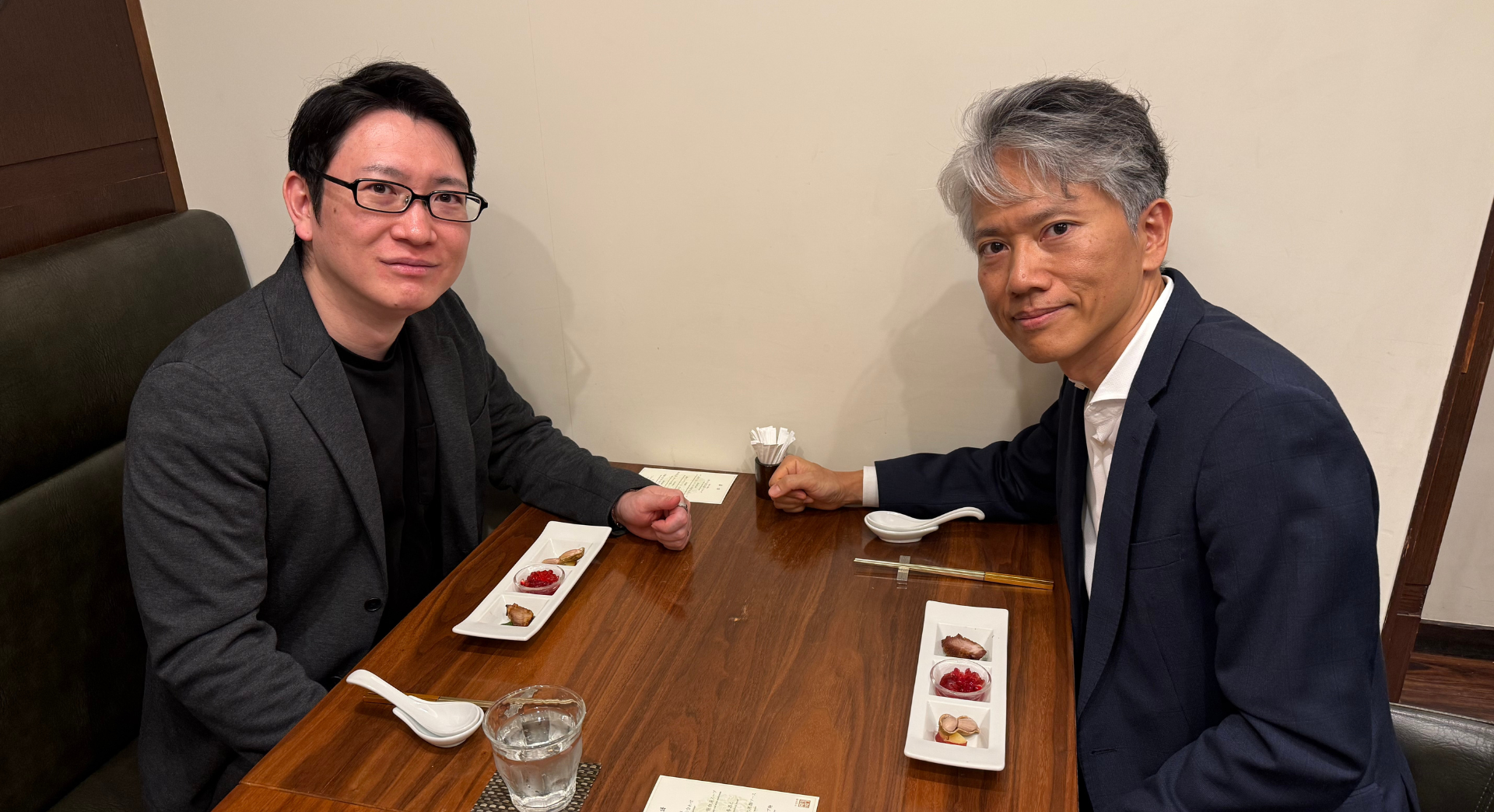Resources

Lunch with Eshima-sensei - Before I realized it, nearly 20 years had passed since we first met. Perhaps because we’ve shared so much time over the years, I can say this with confidence: his presence has always been consistent. Calm in demeanor. Thoughtful in his words. Never making others feel guarded. He brings humor when appropriate, yet never disrupts the atmosphere of the room. Today, the value and significance of in-house lawyers—especially General Counsel as part of senior management—are widely recognized. But when Eshima-san moved in-house more than 20 years ago, that perspective barely existed in Japan. In fact, there was even a bias that going in-house meant you hadn’t succeeded in private practice. Against that backdrop, he steadily built credibility through both hands-on legal work and management, earning the trust of those around him. The respect that the in-house legal profession now commands is the result of efforts by pioneers like him. I believe Eshima-san is one of those who quietly helped shape that evolution from the inside. What often comes up in conversation is his ability to make decisions. But “decision-making” is a complex skill. Personally, I see Eshima-san as a business leader who excels at eliminating "noise." He is careful not to introduce unnecessary friction into stakeholders’ time or decision-making processes. To do that, one must accurately distinguish signal from noise. Sometimes this shows up in very small things—how an approval request is framed, for example. Yet each of these small choices accumulates into trust, eventually leading people to think, “If he’s handling it, we’ll be fine.” I feel that this is the source of his calm presence. As a recruiter who meets many lawyers, this difference becomes apparent very quickly. Those who have been involved in real decision-making—and who have carried both accountability for explanation and responsibility for outcomes—have a distinct sense of gravity. Eshima-san is exactly that kind of person. He shared with me that recently, a younger lawyer had come to him for career advice. He admitted that, at first, he wondered how helpful he could really be. But once they started talking, he realized how many common threads there were—the path they are walking as lawyers, the challenges and rewards, the anxieties and sense of purpose. He said he was struck by how much overlap there was with today’s younger generation. To younger professionals, someone like Eshima-san may seem as though he exists “above the clouds.” But in reality, where he stands today and where younger lawyers stand now are not disconnected. They are on the same ground—he simply happened to be ahead of them. Because he himself has traveled that path, he deeply understands the situation young professionals find themselves in today. He is now hoping to create more opportunities to share his experiences with the next generation. He measures value not by title, not by authority, but by what one can give back to their community. I believe that mindset is one of the reasons he comes across as a leader who transcends the traditional boundaries of being a lawyer.

UBS 証券の取締役法務部長、江島文孝弁護士とランチをご一緒しました。 江島様とは、気づけばもう20年近いお付き合いになります。長い時間を共有してきたからこそ分かるのですが、彼の印象は昔から一貫しています。落ち着いた佇まい。言葉は丁寧で、相手を構えさせない。必要な場面ではユーモアも交えつつ、決して場の空気を乱さない。 今でこそインハウス弁護士、とくに経営の一部としてのゼネラル・カウンセルの存在意義やバリューの高さは広く認識されていますが、江島様がインハウスに移られた20年以上前の日本では、そのような見方はほとんどありませんでした。むしろ、「事務所で成功しなかったから企業に行く」という偏見すらあった時代です。 その中で、実務とマネジメントの両面から地道に価値を積み上げ、周囲を納得させてきた。今、インハウス弁護士という職域が尊敬をもって語られるようになった背景には、こうした先駆者たちの積み重ねがあります。江島様は、まさにその流れを内側から静かにつくってきた一人だと思います。 お話の中で話題になるのは決断する力です。「決断力」と一言で言っても、その中身は複雑です。個人的には、江島様は“ノイズを消すこと”に長けたビジネスリーダーではないか、と思います。ステークホルダーの時間や意思決定プロセスに、余計なノイズを入れない。そのためには、何がシグナルで何がノイズなのかを正確に見極める必要があります。 それは時に、承認申請の仕方といった、ごく小さなことかもしれません。ただ、その一つひとつの積み重ねが信頼となり、結果的に「この人に任せれば大丈夫」という評価につながっていく。江島様の落ち着きの正体は、そこにあるように感じます。 リクルーターとして多くの弁護士と会っていると、この違いはすぐに分かります。意思決定に関与し、説明責任と結果責任を引き受けてきた人には、独特の重心があります。江島様は、まさにそのタイプです。 最近、江島様は若手弁護士からキャリア相談を受けたそうです。その際、ご自身がどれほど役に立てるのか不安に思う瞬間もあったと話してくれました。しかし実際に話してみると、弁護士として通ってきた道、面白さ不安、やりがいなど、今の若者とも多くの共通点を見出したとおっしゃいます。 若い人から見ると、江島様のような存在は「雲の上」にいるように見えるかもしれません。しかし、彼がいる場所と、今の若手が立っている場所は、決して断絶していません。同じ陸地の上を歩き続けた結果、今そこにいる。かつて自分自身が通ってきた道だからこそ、今の若手が置かれている状況をよく理解している。 今は、これまでの経験をもっと若い世代と共有する機会を持ちたいと考えているそうです。 肩書きではなく、権限でもなく、コミュニティに何を残せるかで価値を測る。 その姿勢が、江島様が弁護士の枠を超えたリーダーだと感じさせる一つの理由だと思います。

変革を推進できる弁護士は日本では少ない——そう言われがちですが、実際には確かなリーダーが存在します。 Just Legalでは、日本の法曹界で活躍する50名のリーガルリーダーにお会いするプロジェクトを進めています。今回ご紹介するのは、半導体関連のグローバル企業で活躍されている児玉薫さんです。 児玉さんは英国弁護士資格を持ち、Big Lawで研鑽を積んだ法務プロフェッショナルです。いわゆる「先生」的な立ち位置ではなく、“サービス・ソリューション提供者”としてビジネスに伴走する姿勢を大切にされており、これまでのインハウス経験を通じて培われたリーダーとしての視点が非常に印象的でした。 「法務の役割は、ビジネスを前に進めるために寄り添うことだと思っています。」 これまで複数の企業でインハウス法務として経験を重ね、直近ではスタートアップにおいて法務部門をリード。環境やフェーズの異なる組織の中で、実務と意思決定の双方を支えてきた実績をお持ちです。 「仕組みを変えるには、まずその仕組みが“なぜ存在するのか”を理解することが必要です。」 この言葉のとおり、拙速な改革ではなく、理解・共感・対話を土台にしながら、組織に前進をもたらしていく——その姿勢こそが、児玉さんのリーダーシップの核だと感じました。 グローバルな基準とローカルな感覚を併せ持ち、調和を大切にしながらも着実なアップデートを重ねていく。現職では、組織に前進をもたらす役割を担われていることがうかがえ、その進め方は、まさに時代に求められるリーガルリーダー像の一つだと感じました。 児玉さん、お忙しい中お時間をいただき、貴重なお話を本当にありがとうございました。次世代のリーガルリーダーにとって、大きな示唆となる内容でした。

It is often said that lawyers who can also contribute to an organization’s forward progress are rare in Japan. And yet, such leaders certainly exist. At Just Legal, we are continuing our project to meet 50 legal leaders active in Japan’s legal community. Today, I’d like to introduce Ms. Kaoru Kodama , who plays a key legal role at a global company closely connected to the semiconductor industry. Kodama-san is a UK-qualified lawyer with Big Law training. Rather than positioning herself as a traditional “sensei,” she approaches her role as a service and solution provider, working closely alongside the business. That mindset, shaped through years of in-house experience, was particularly striking. “Legal should stay close to the business and help it move forward.” Over the course of her career, she has held several in-house legal roles, and most recently led the legal function at a start-up. Working across organizations at very different stages has given her a balanced perspective on both execution and decision-making. “You can’t improve a system unless you first understand why it exists.” True to this view, her approach is not about rapid or disruptive change, but about building understanding, trust, and dialogue — and from there, enabling steady forward movement within the organization. Combining global standards with a strong sensitivity to local context, she values harmony while continuing to raise the bar in a thoughtful and measured way. In her current role, it is clear that she is contributing as a leader who brings forward momentum to the organization, in a manner well suited to today’s environment. Kodama-san, thank you very much for taking the time to share your perspectives. Your insights offer meaningful guidance for the next generation of legal leaders in Japan.






